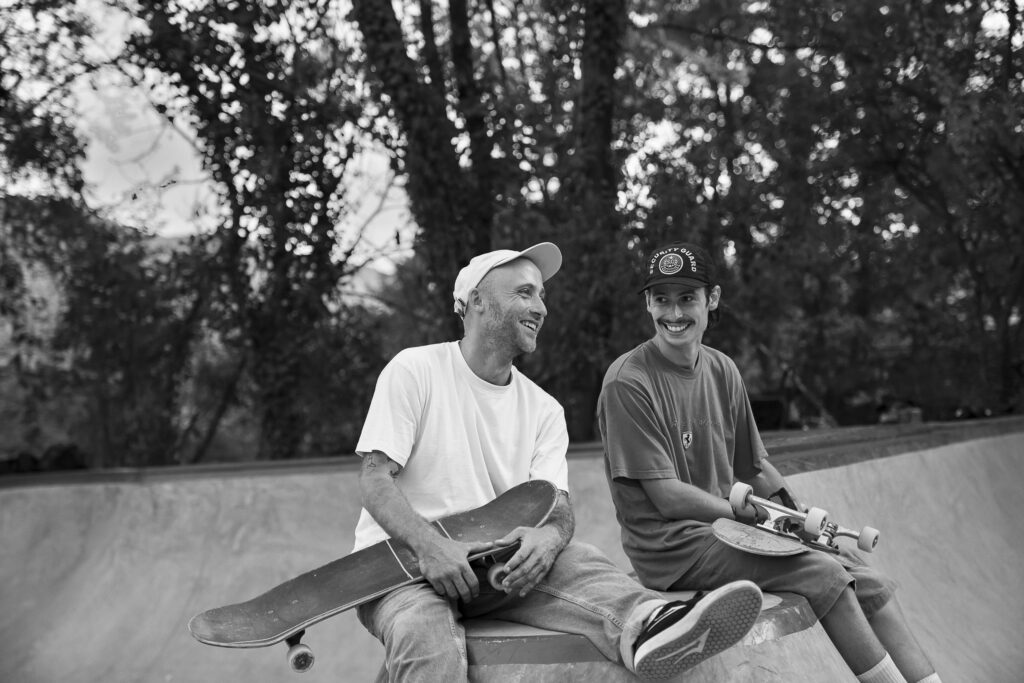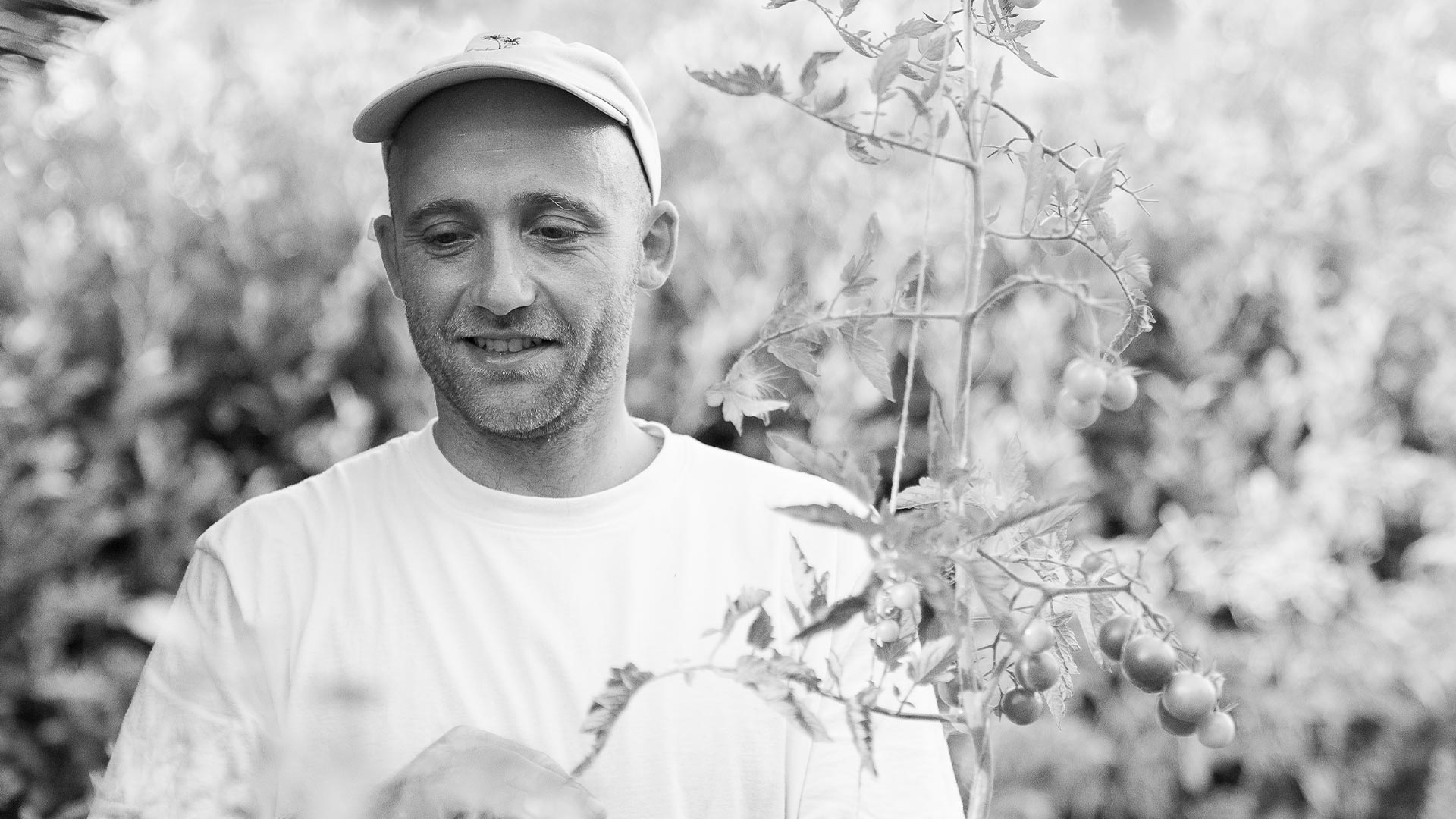Leo Poulet
Leo Poulet was born and raised in France.
He started skateboarding at a very young age and he turned his passion into a profession, eventually becoming a skateboarding teacher.
He joined the organisation “Wonders around the World” and started to build skate parks around the world in poor countries with children in need.
He loves his profession so much that he hopes to continue helping children for as long as possible during his life.
Hello, Leo. Thank you for your time. We are here at your place, 35 degrees, we just manage. In order to have the correct information, could you just tell us: who are you?
I’m Leo Poulet, 34 years old soon, no recently. I live in France. I have skateboarded for 22 years now. I work at building skateparks and build them professionally in France. And I have an association that builds skateparks around the world in poor countries.
That is the association “Wonders around the World”. You go into other countries, just poor countries, third world countries, to build skateboard parks. I read about you and I know that you are very successful. You’ve built many skateboard parks already in your life?
I don’t know how many. But with “Wonders”, we have done 20 projects in the last five years.
That’s a lot, because you have to go there and build them from scratch.
First, we build a connection with the people there, with the citizens. We make contact with them and work with them to get the land and try to manage the finance. And then we come with 20 volunteers and build the skatepark. It ‘s a long process.
I work with volunteers, I do the plans, the project, everything. It needs a lot of tenacity, curiosity, taking risks, all these things. We have to work fast because we don’t have much finance. You can’t feed a lot of people for too long. You can’t give them housing for too long. So, we have to be fast.
Everything needs to be very precisely prepped before we come, before we show up. And if everything is good and in good condition before we come I can finish the project in five weeks. It depends on the size, but we always try to not go too big so we are able to finish it in a short time.
Why do you think you have come so far?
I have to start from the beginning of the story. I taught skateboarding for six years, and then I quit and started to travel, just to travel. But I got bored with travel alone. When you keep getting the best views, the best countries, the best sunsets, I don’t know, for me it was like every day is the same, even if you are travelling.
When I went to Nepal, to help building a skatepark, I saw all these volunteers killing themselves in the sun and completing an enormous amount of work, my mind and heart were blown away. At that time I didn’t know much about construction, but my mind was just blown away when I saw what they were doing. And I realized that they did all the work for free, they volunteered. There is such a great motivation and so much love behind it. And I was like, “Okay, this is for me. I’m only going to do this.” And then I just kept doing it, loving it from the bottom of my heart for three years jumping from one project to another.
I traveled the whole world doing projects and learned a lot. I still can’t stop, and I don’t want to stop, for sure. I’m committed to these projects, which I love, and I hope I will never have to do something else ever in my life. There are so many smiles behind what we do. The kids are always smiling because they start to do skateboarding. You know, when you bring this to somebody else, kids in a really poor country for example, it is going to be a life changer, for sure. It’s going to be a banger and it always works. We have seen it. We get confirmation again and again within the projects.
And as much as the country is poor, or at war or any kind of hardship the harder it is, But I am going to bring something that is going to help them to escape, improve and thrive.
The impact on the children’s daily life is huge and they learn a lot. It is a school for life.
Scientific studies have been done on skating. The moves and keeping your balance have an impact on the brain. It is scientifically proven that with skateboarding you influence the structure of your brain through the process of neuroplasticity.
What you develop the most, what you learn the most is how to fall, and to get up again, to fall again and to never stop getting up. You want to get to the goal, so you finish what you have started. If I want to learn new tricks, I’m going “to kill myself” in order to get there. When you learn this as a child, when you grow up, you know how to fall and more importantly you know how to get up again, Nothing is going to stop you in your life in general. You learn how to fight when you get in trouble.
When you have an objective, you’ll achieve this for sure. It just pushes you. You learn stuff for your life. You learn to fight; you learn to redo and redo and stand up again and again. Being passionate, you learn a lot of things. This is what I said the most to parents when I was a skateboarding teacher: as soon as you give me your kids to learn how to skate, their life’s going to change, you have to know it.
Stuff is going to be different afterwards, and it always changed their life.
When you leave these parks, do you first give instructions and teach them to skate, so they can give the skills to other kids?
No, we don’t do this. When we build somewhere, it’s because people are already skating there, and they are asking to have a place to skate because they don’t have any. We would never go somewhere where there’s absolutely no one skating and put a skate park there. Because other NGOs are doing this, and I definitely respect the way they work. But for us, what is important is to provide the space. We don’t do the after work.
With our project the local people have to do the after work, because we’re just providing the space, and they have to take care of the space, and because they already know how to skate, they can teach people. It makes sense because if you give everything, the teachers, the skateboard, the skate park, they just consume and you have to do this forever. You’re never going to stop if you start to give lessons, if you start to give jobs to them, if you start to give skateboards. As soon as you stop, it would be very hard for them to survive. I mean, they’d find a way, but they could have problems.
What we do mainly is to try to have at least 50 skateboards that we leave there. It’s also because we don’t want to put a flag there. You know what I mean? The current problem of NGOs, I would say, is to say that they build a park there, and continue working there, and they’re working in 24 countries.
It’s not our approach. What we like is to give them something and then go back to our country.
To do all the after work you need a lot of money, and we don’t have any. But we go there because we get back their smile. It’s the best salary you can get. The smiles from kids and even adults, you know, to see people enjoying what you did, you can see it on their face.
You’ve reminded me of something. We built a park in Syria with another NGO. As soon as we finished building the park, you could see on the face of the kids that they had never had as much fun as this before. When they start using a skateboard, and the skateboard is moving, you can see on the face that they have never had this feeling before. They never had that much positive energy. And others have the benefit. You get the compensation that they have something they can do and learn for life. Yeah. If I could have this as a salary in my own life, I would say, “I don’t need a job.”
Where do you get your inspiration from to create these parks?
We get contacted by the locals. And then from this, we exchange a lot of emails to know who they are, because we also sometimes get emails from the kids in the middle of Africa. They get our email address, but sadly we can’t do this with everyone. So, for example, when we get in contact with a local association or something, we have to explain the whole process to them. And then sometimes the money comes from a private sponsor that pays for everything. The country can do a crowdfund. Sometimes it’s just a crowdfund running for two or three years, and then at some point the amount of money is sufficient.
And then we start. I mean, as soon as we get to 20 or 30 volunteers we come. And then you have to have good weather. In most of the countries we go to you cannot build for 6 months of the year because we use concrete.
And how do you recharge your batteries?
I skate.
I surf too. I have a fantastic girlfriend that I like to hang out with and do some hiking and be with friends. But mainly I skate a lot because my body is getting tired, so I try to keep skating as much as I can.
Do you have a utopia? Do you have sort of a vision of an ideal world for all of us?
I don’t know if I really have the answer for this, but I mean, the best way for me would be to grow vegetables and that no one has to work, no one has to spend time on jobs and just enjoy their own life. But in reality, we have lots of wars, we have lots of injustices, and so one approach would be giving and making sure that others are well.
Taking care of each other. I mean, it’s the main point. If everyone does this, I think we could live without politics, if we could all help and respect each other, we would not need anything else. So, we are back to showing respect and taking care of people. So easy. I don’t think it’s going to happen, but it would be the best world for me.
Watch the full interview with Leo Poulet
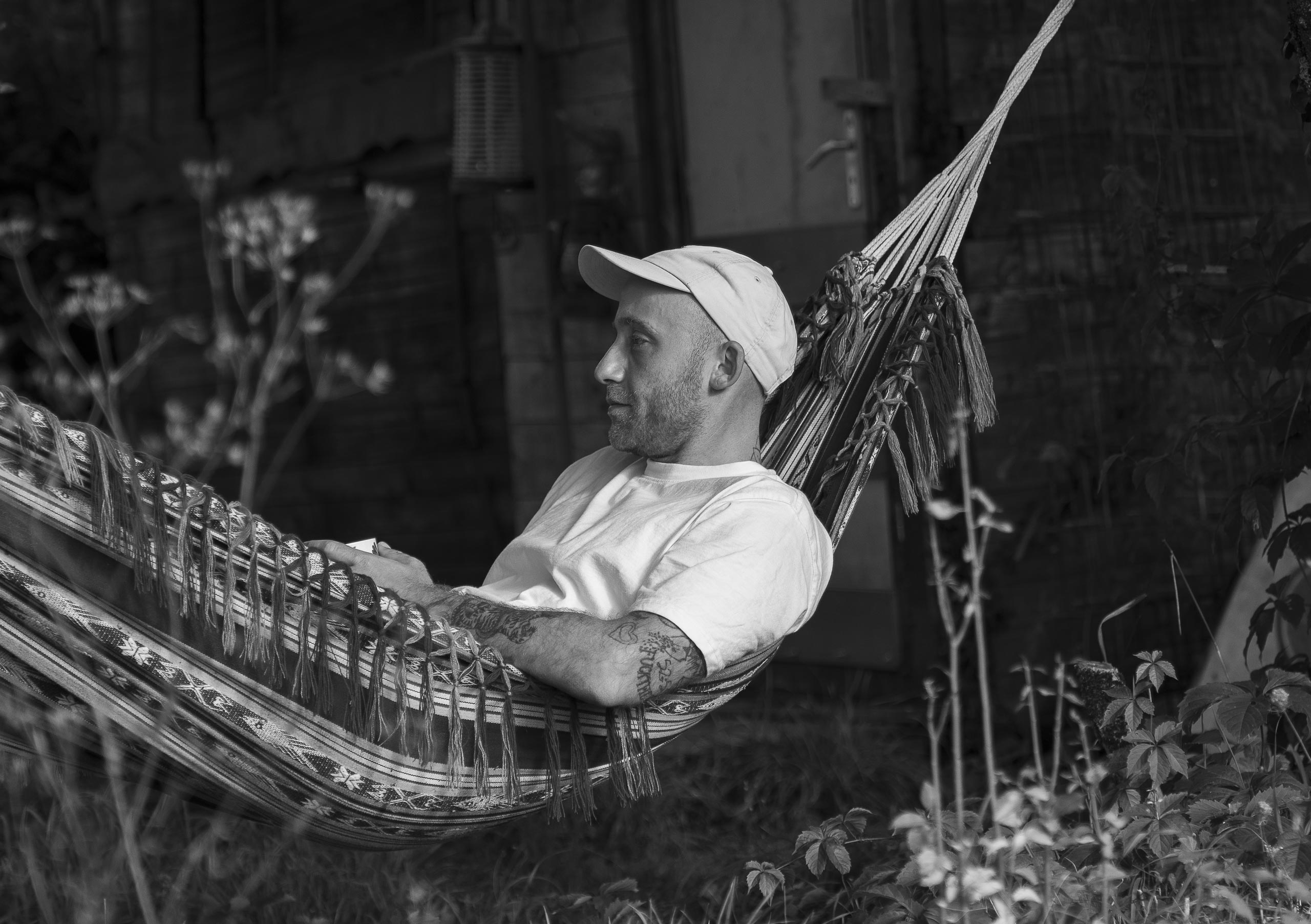
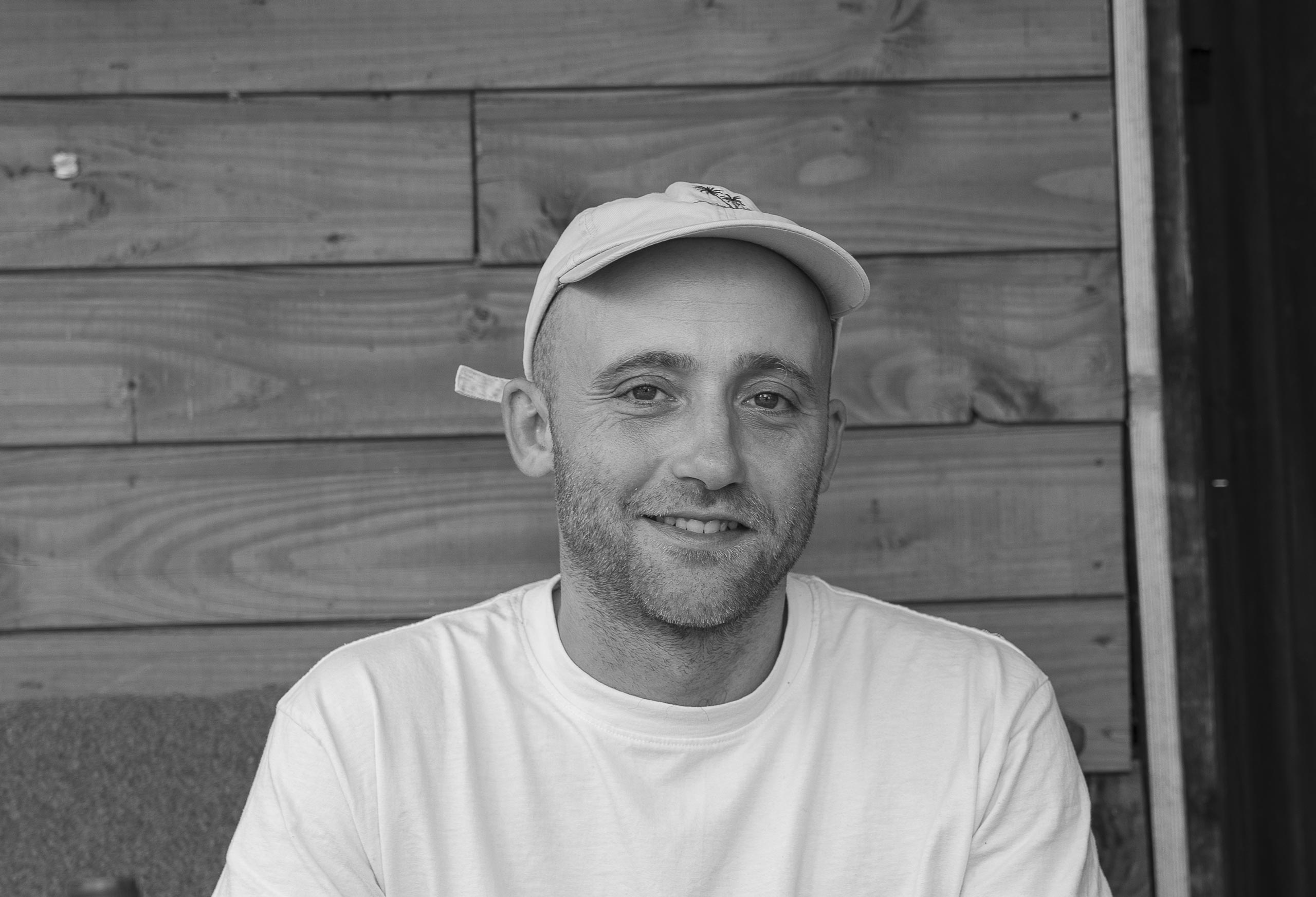
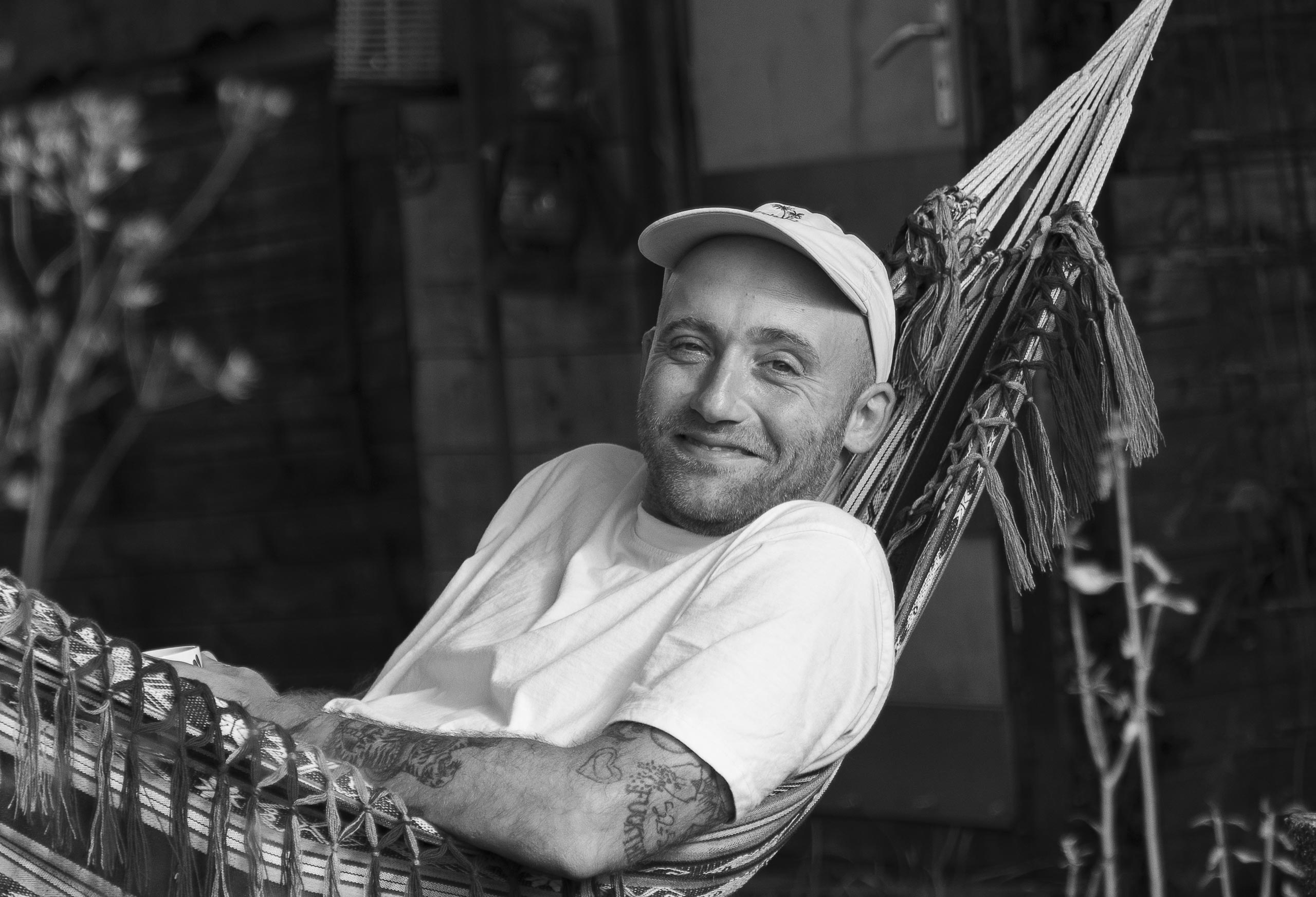
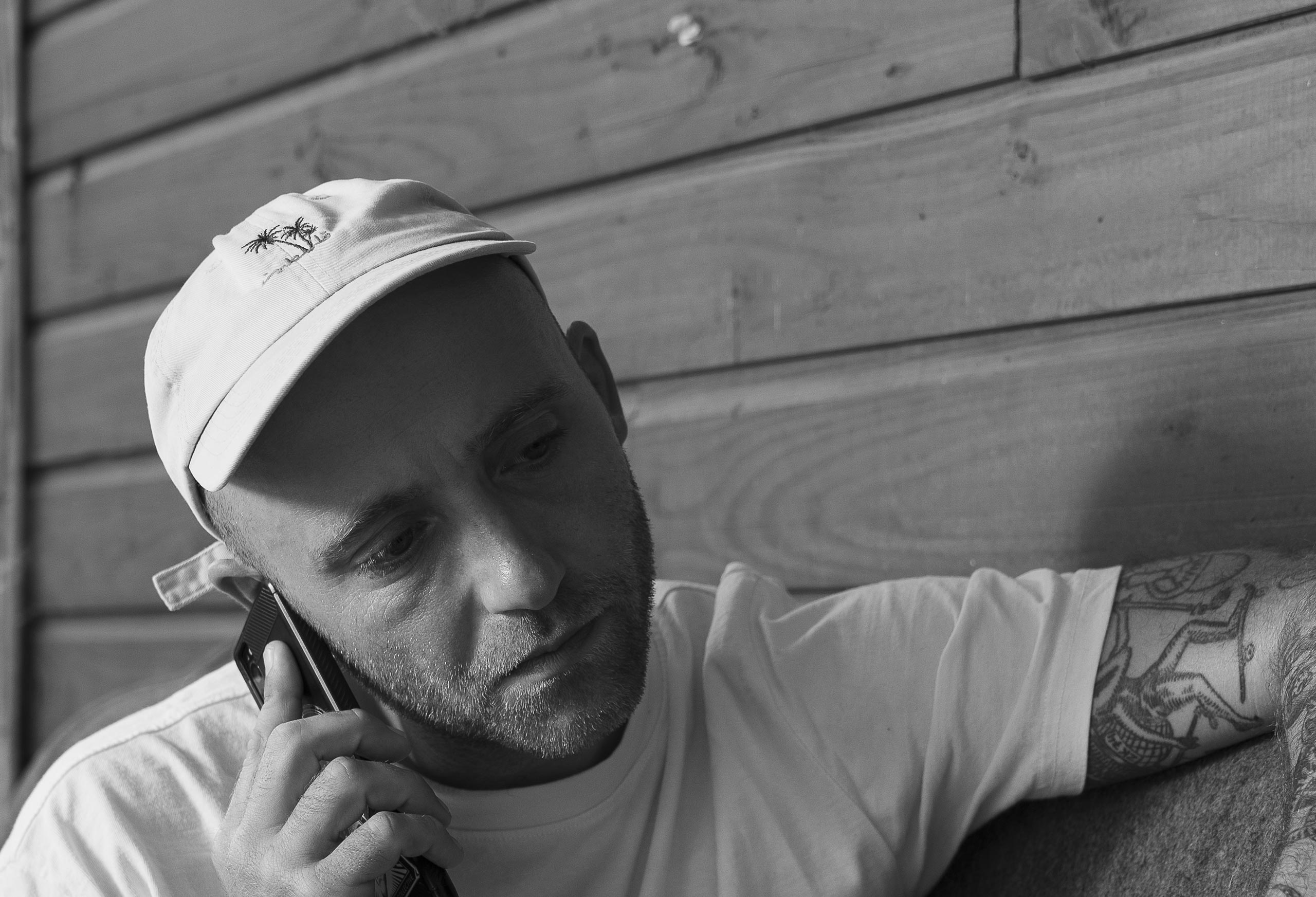
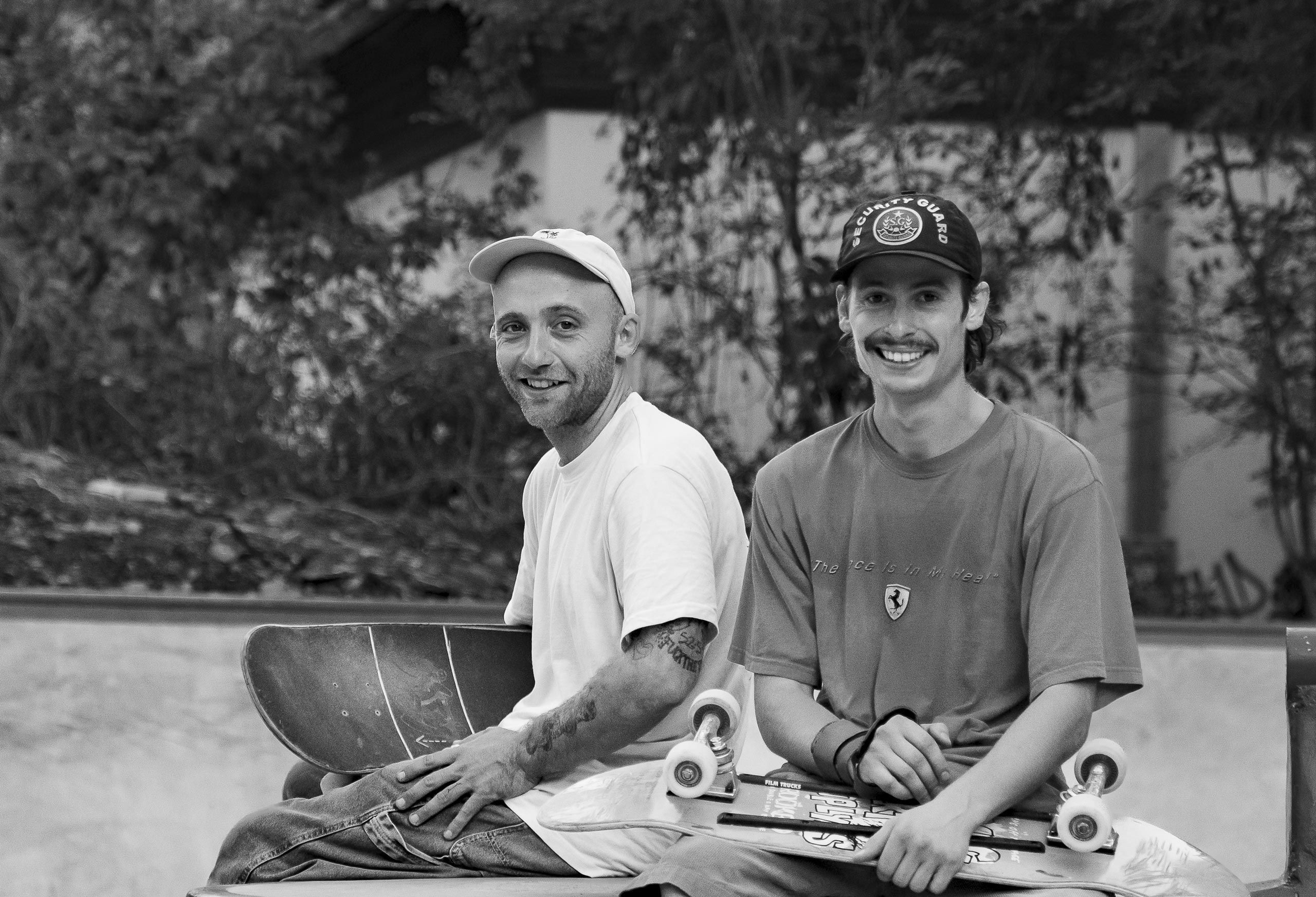
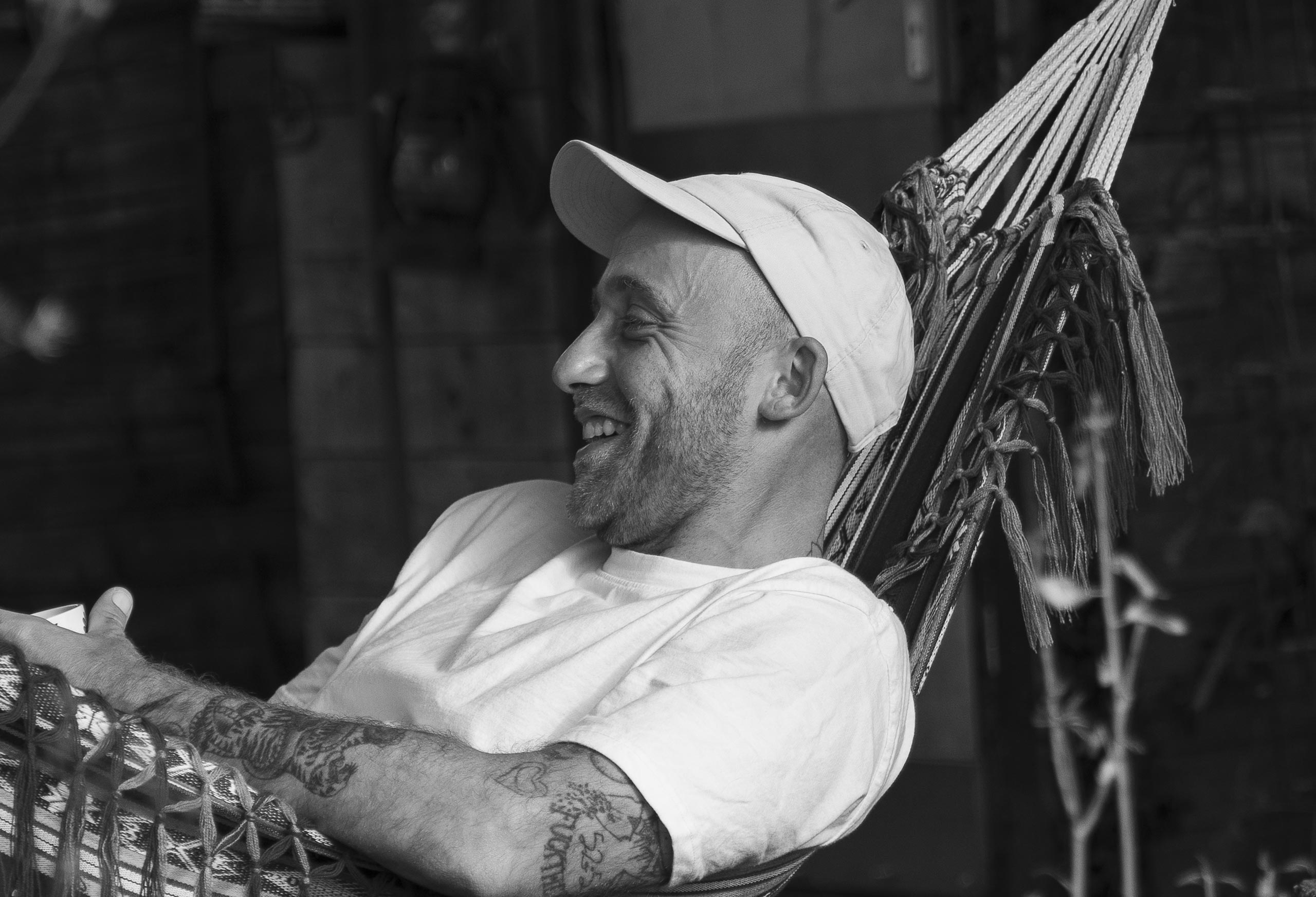
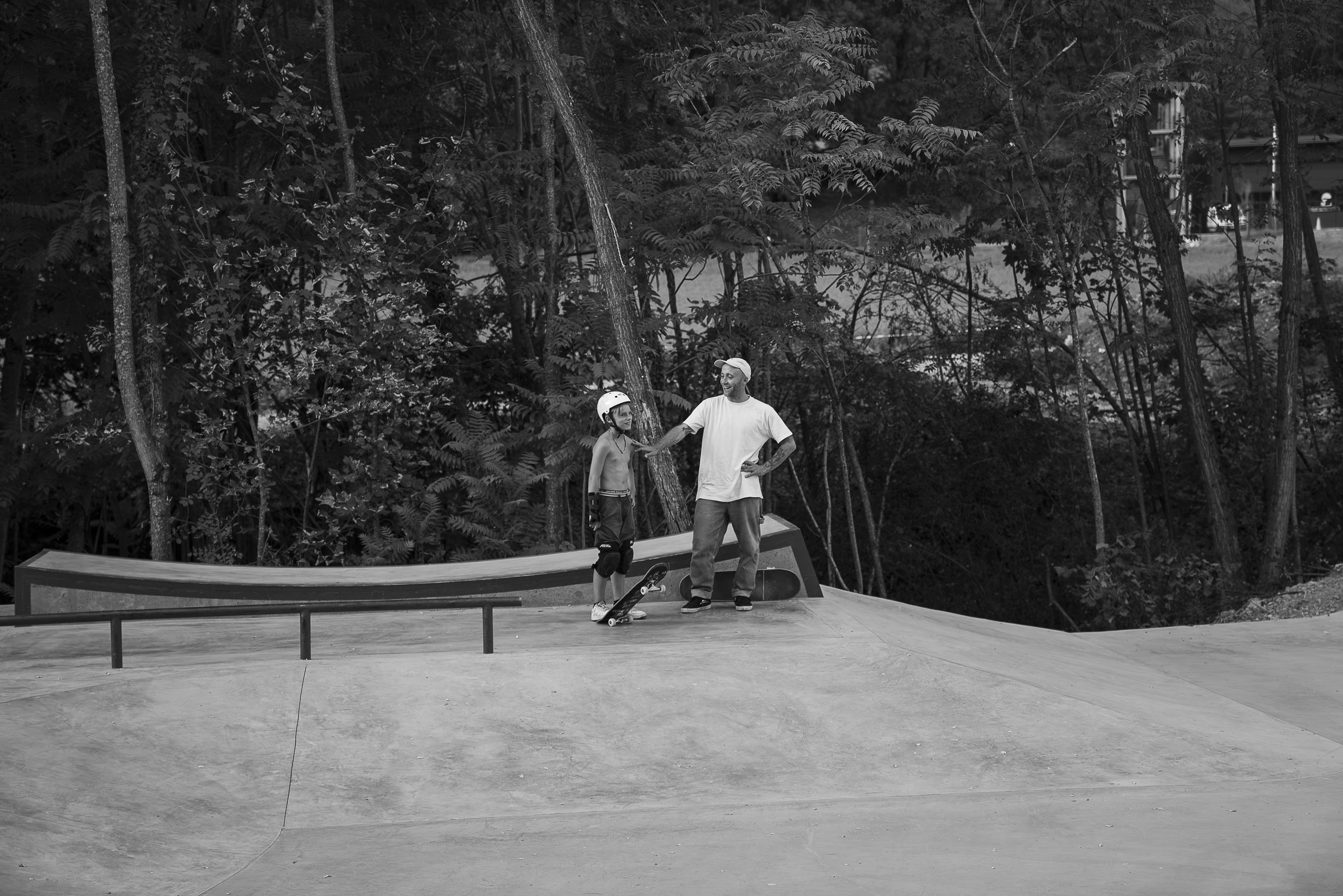
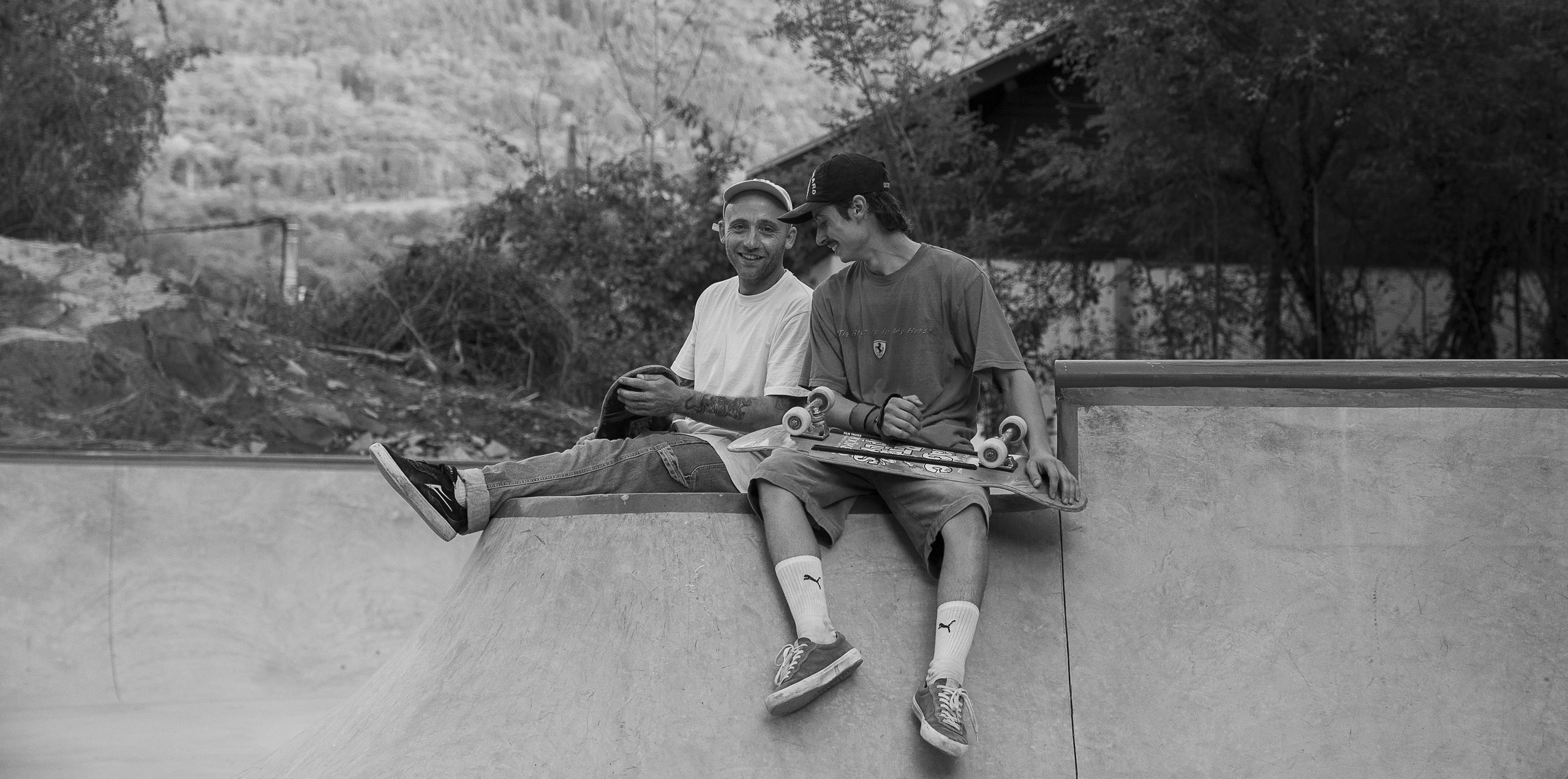
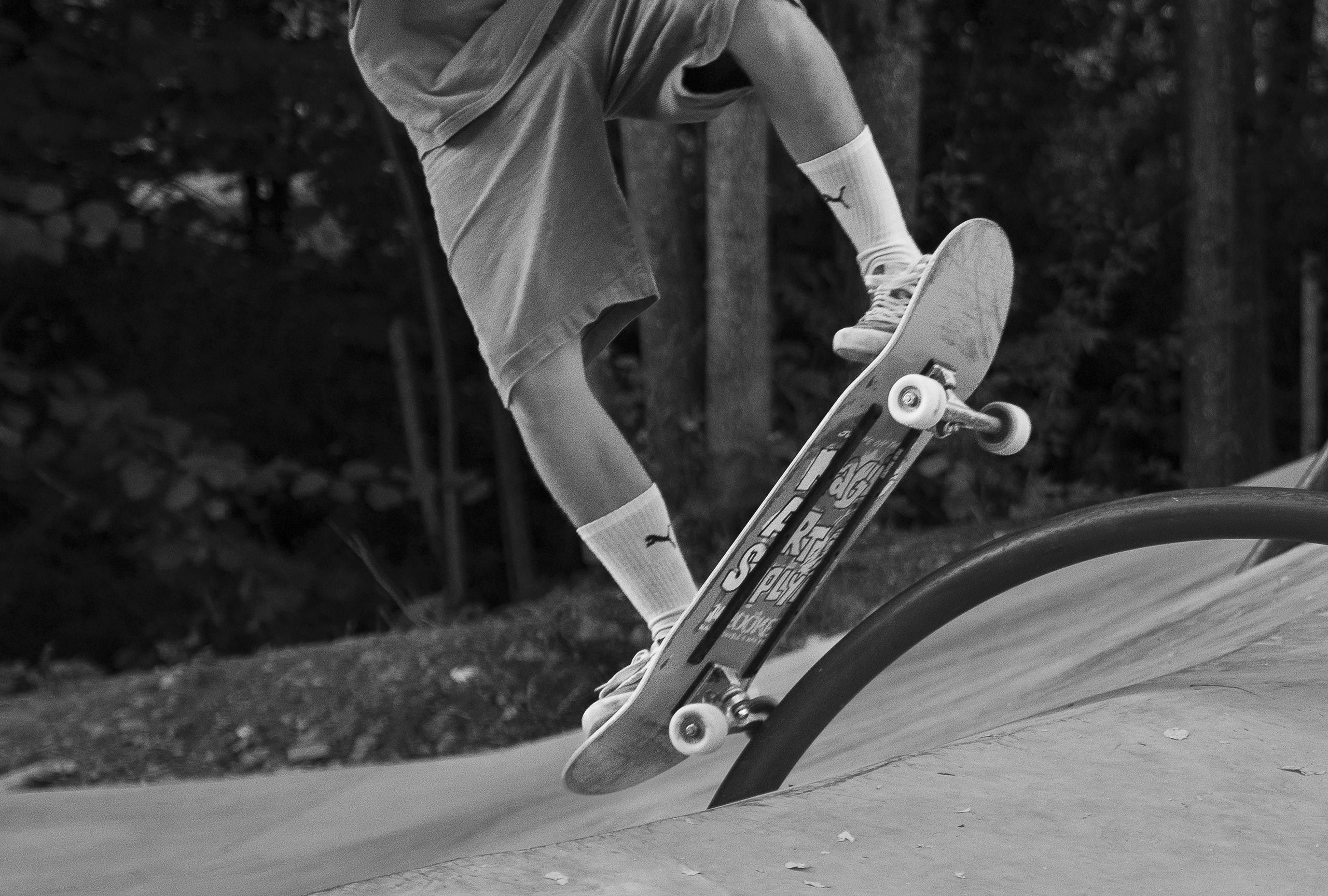
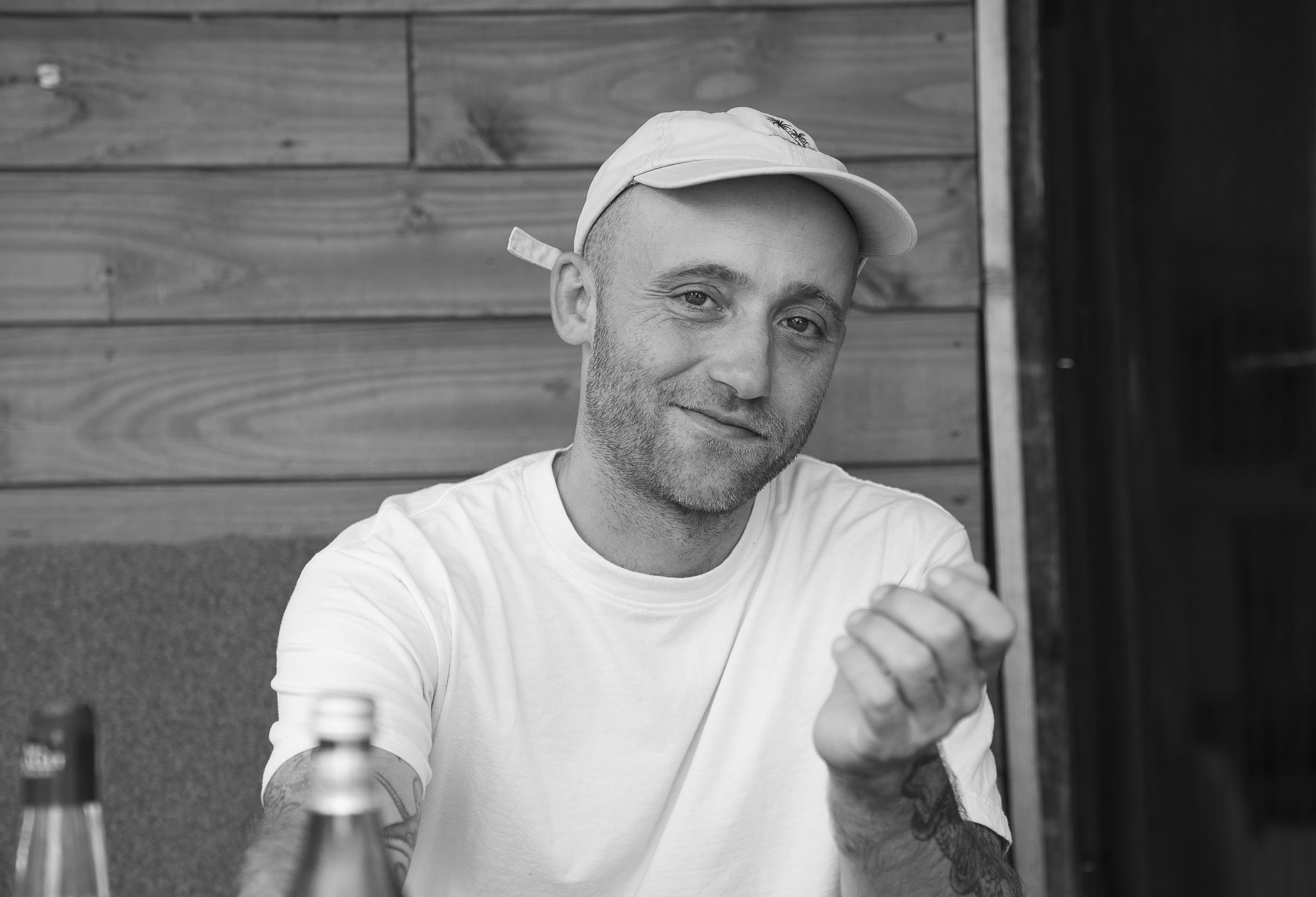

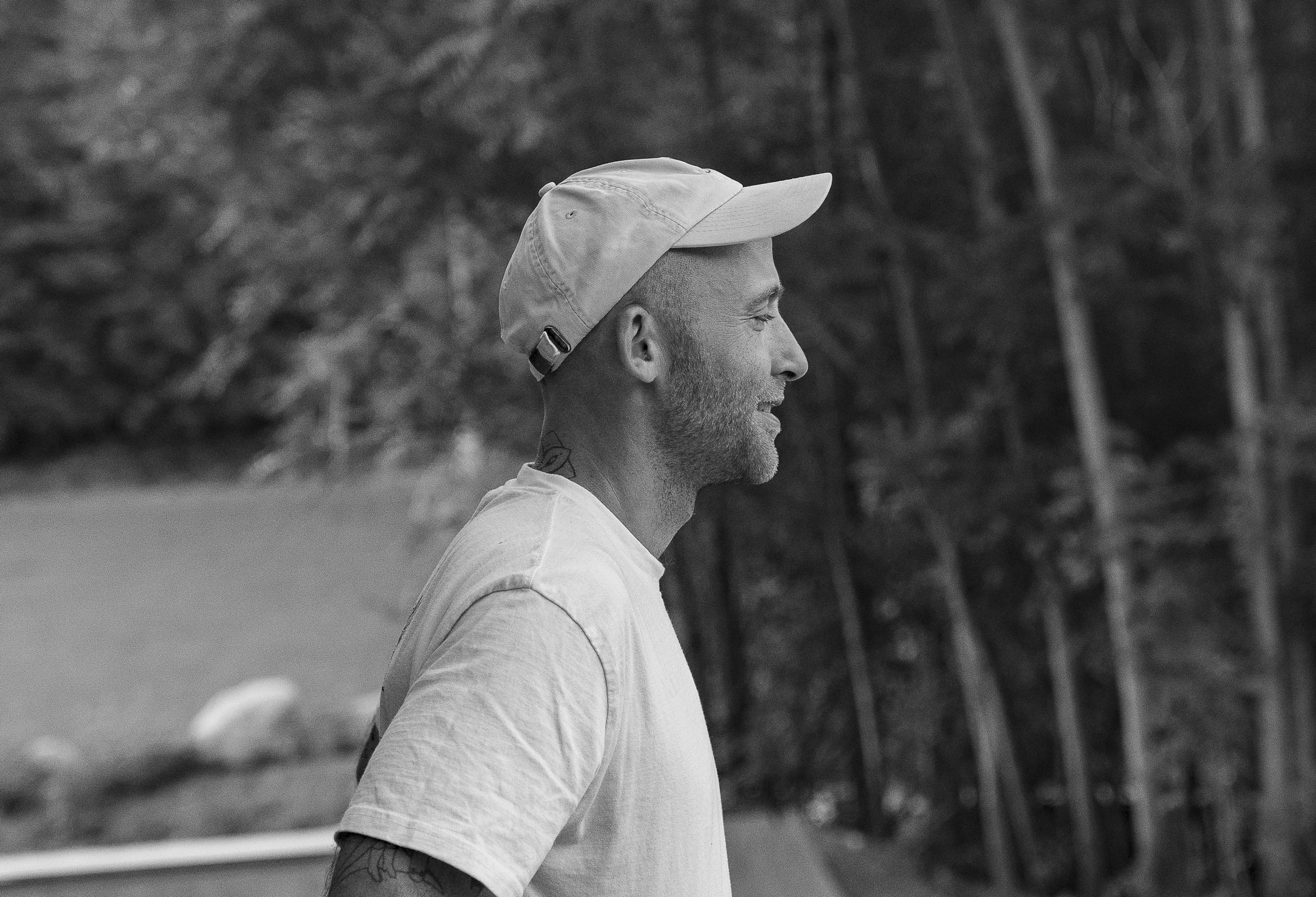
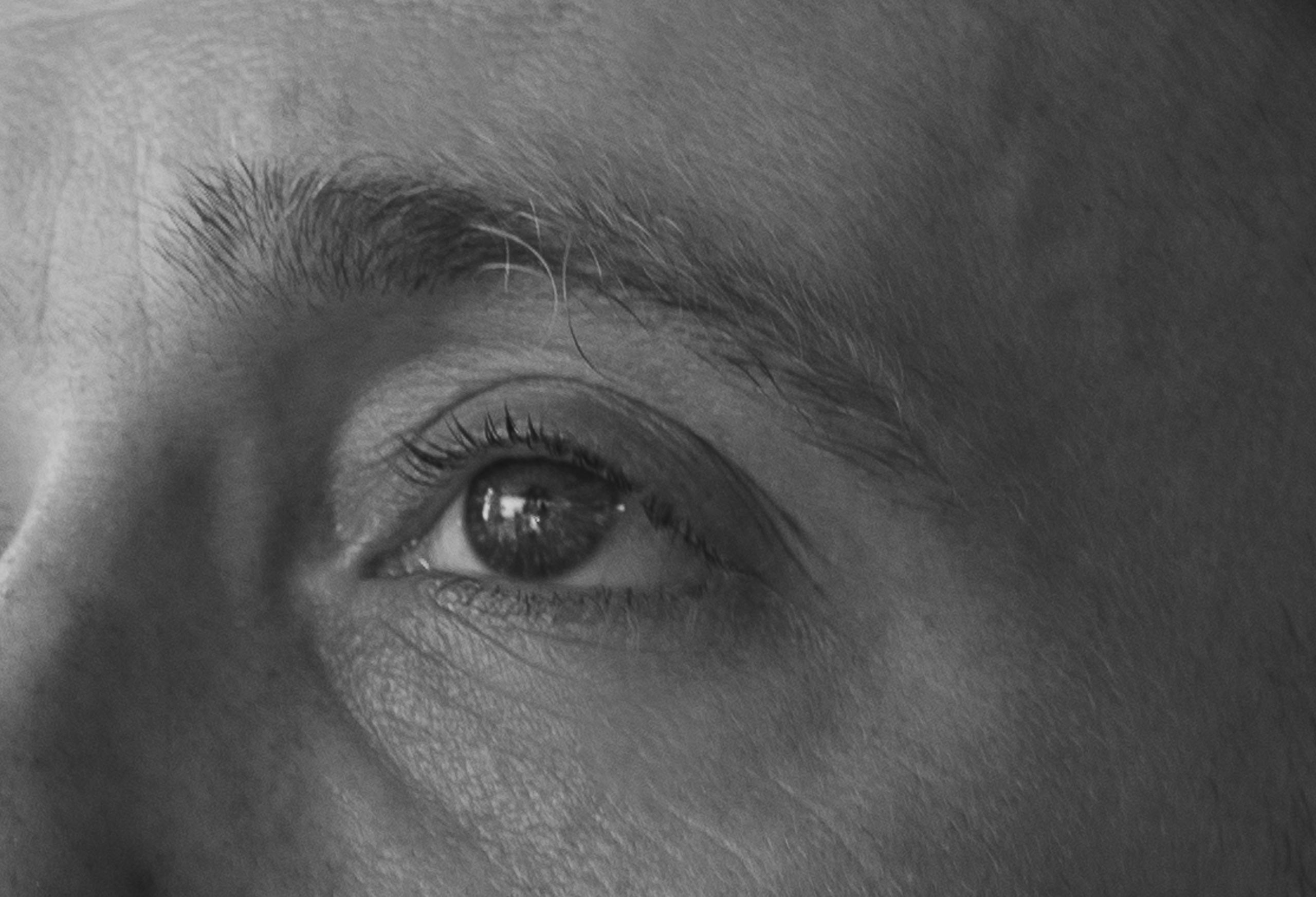
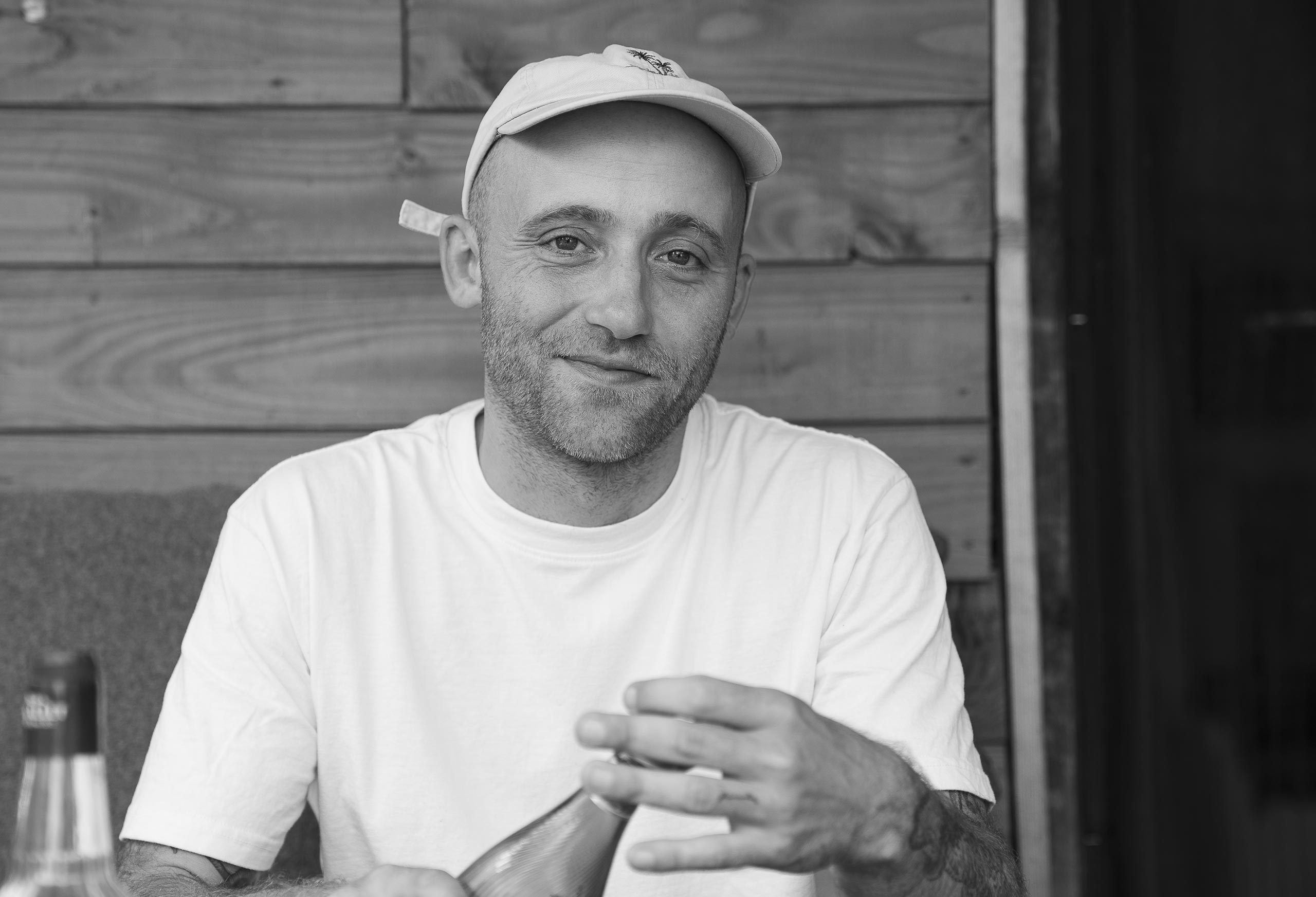
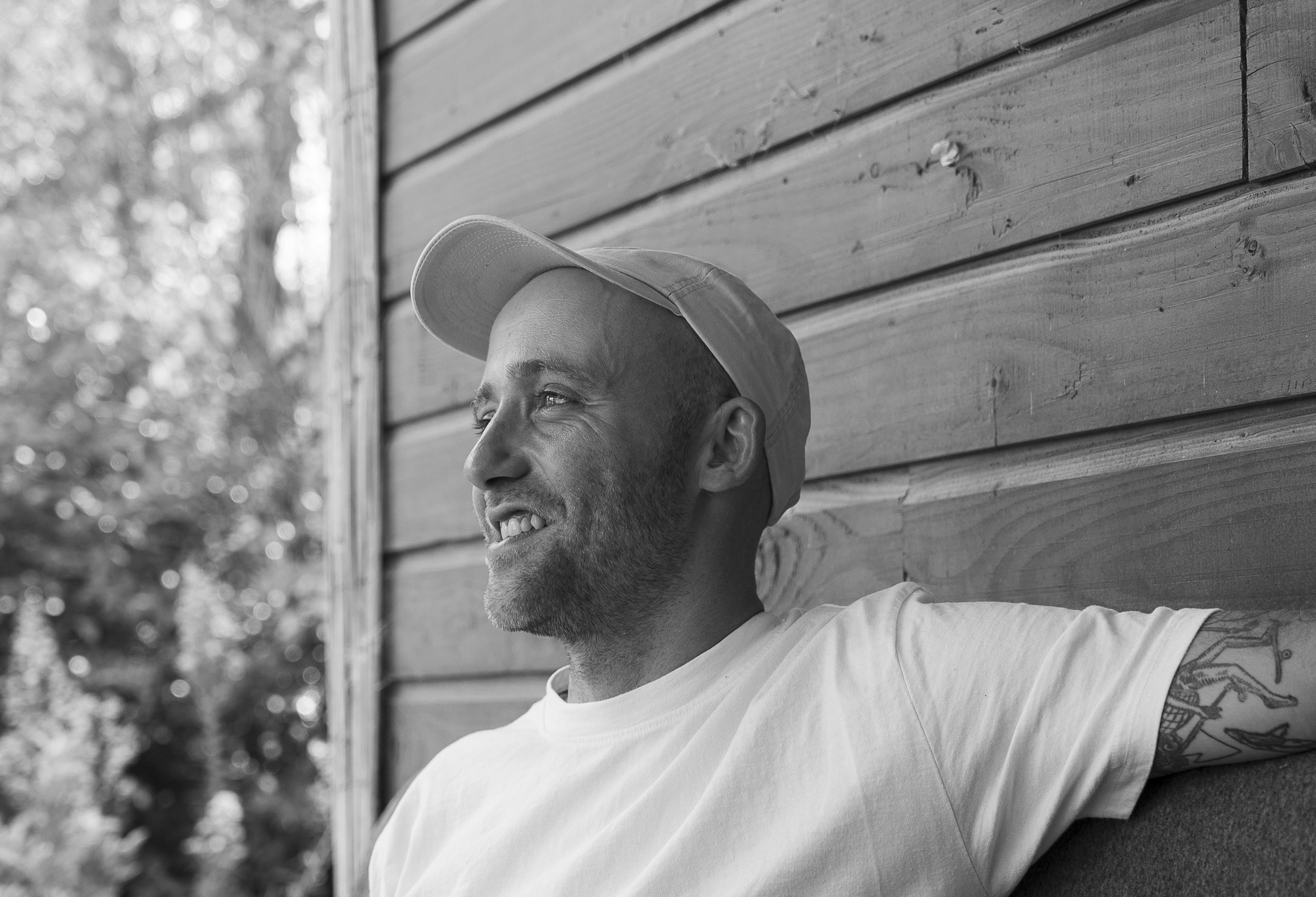
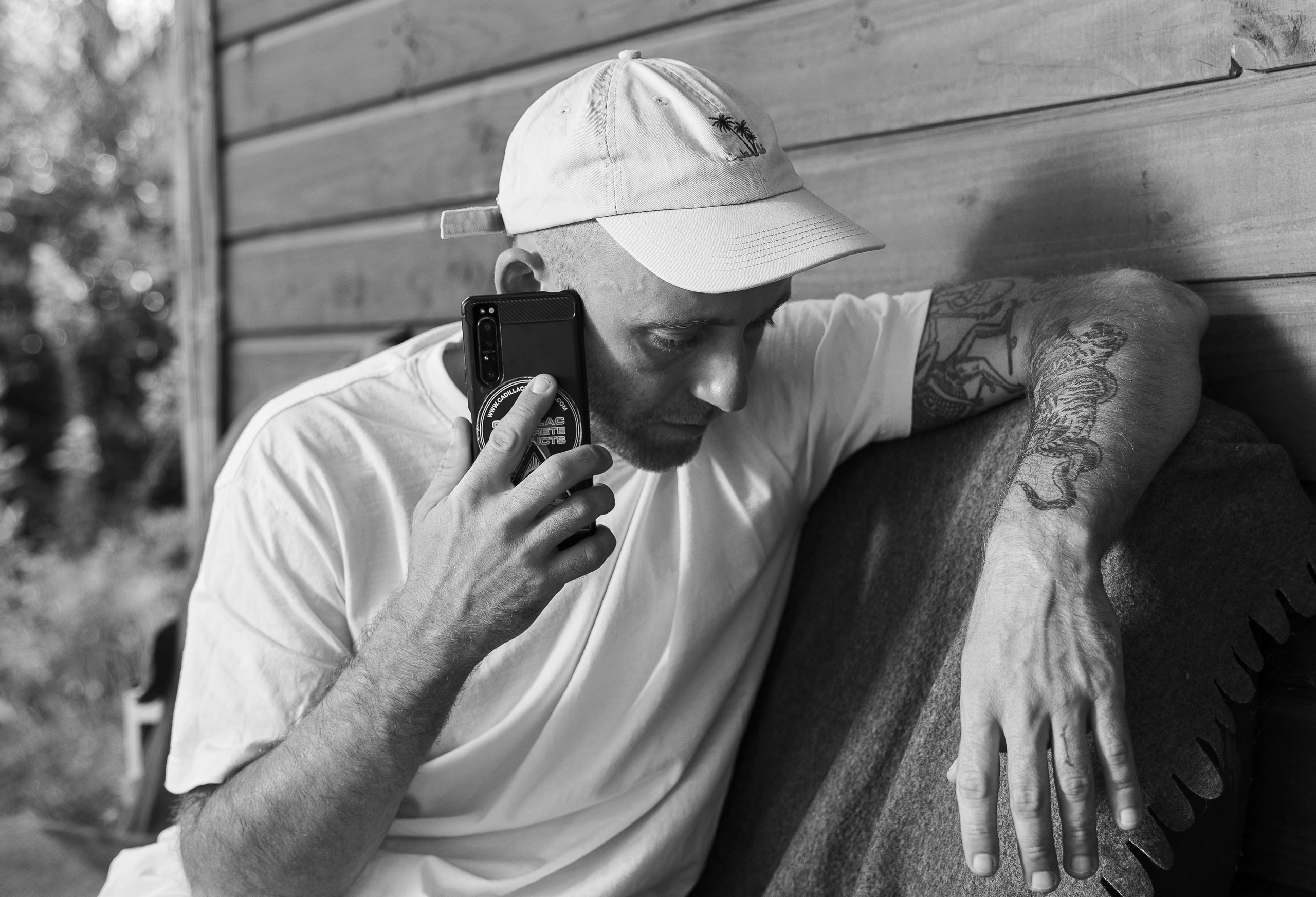
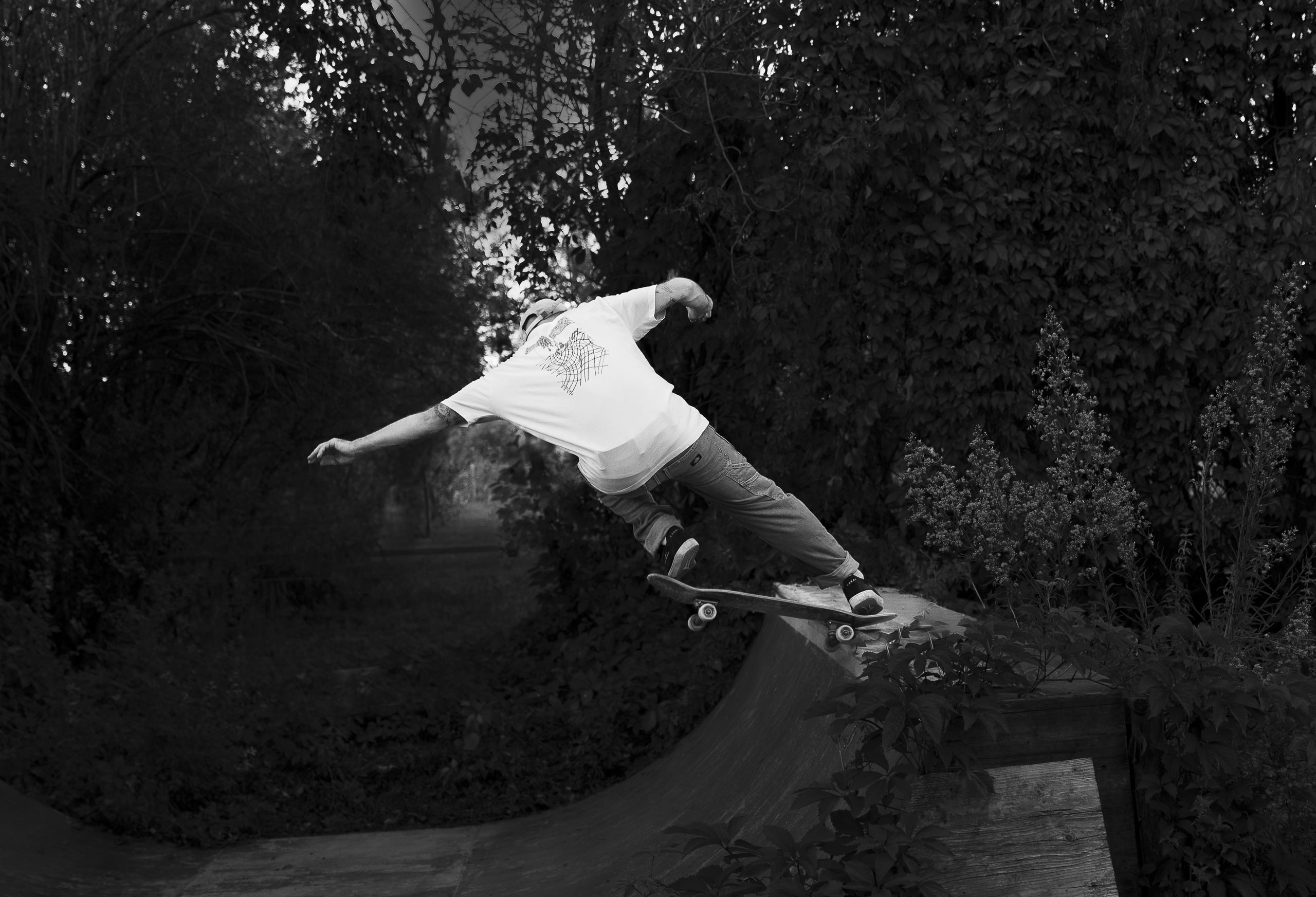


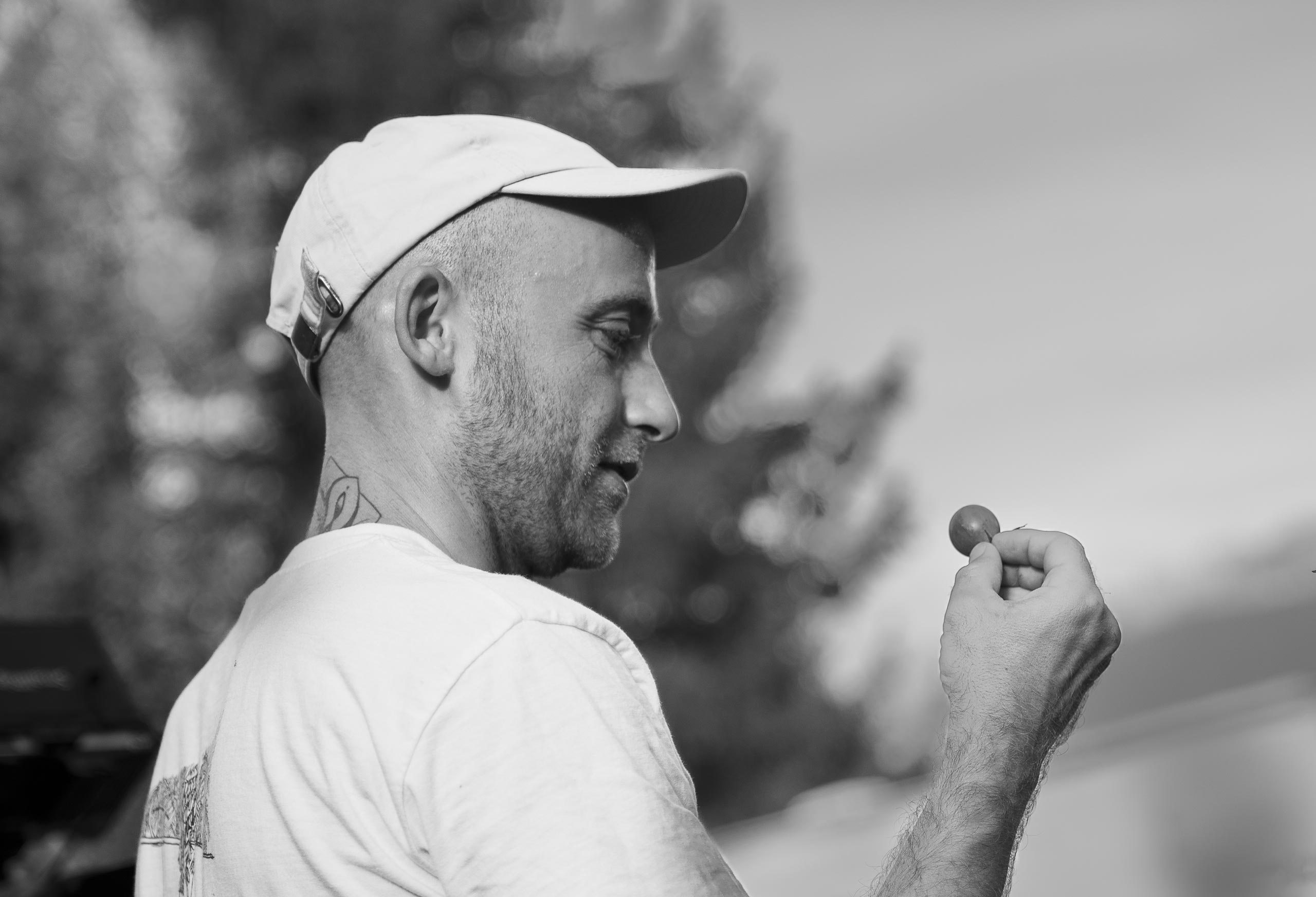
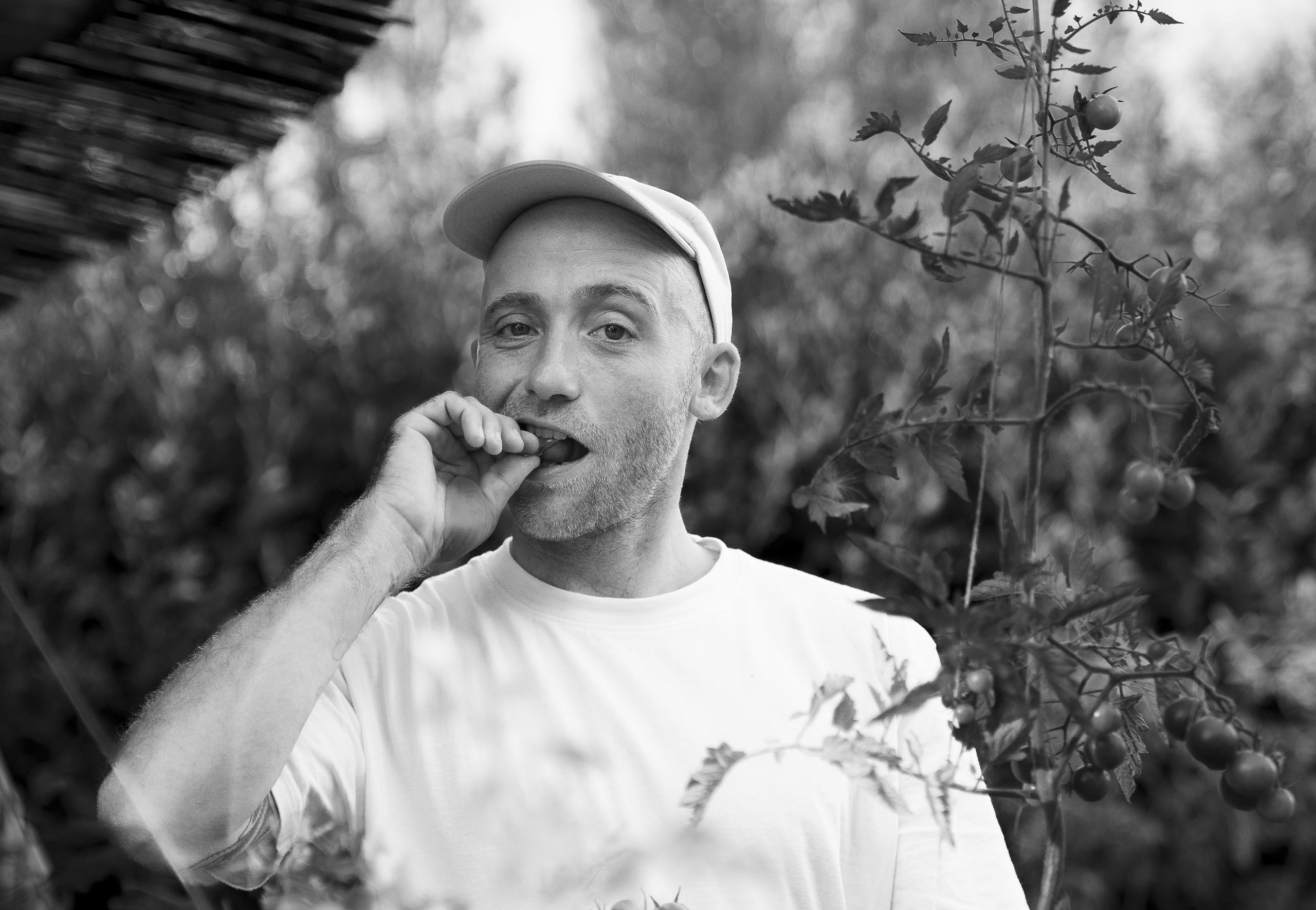
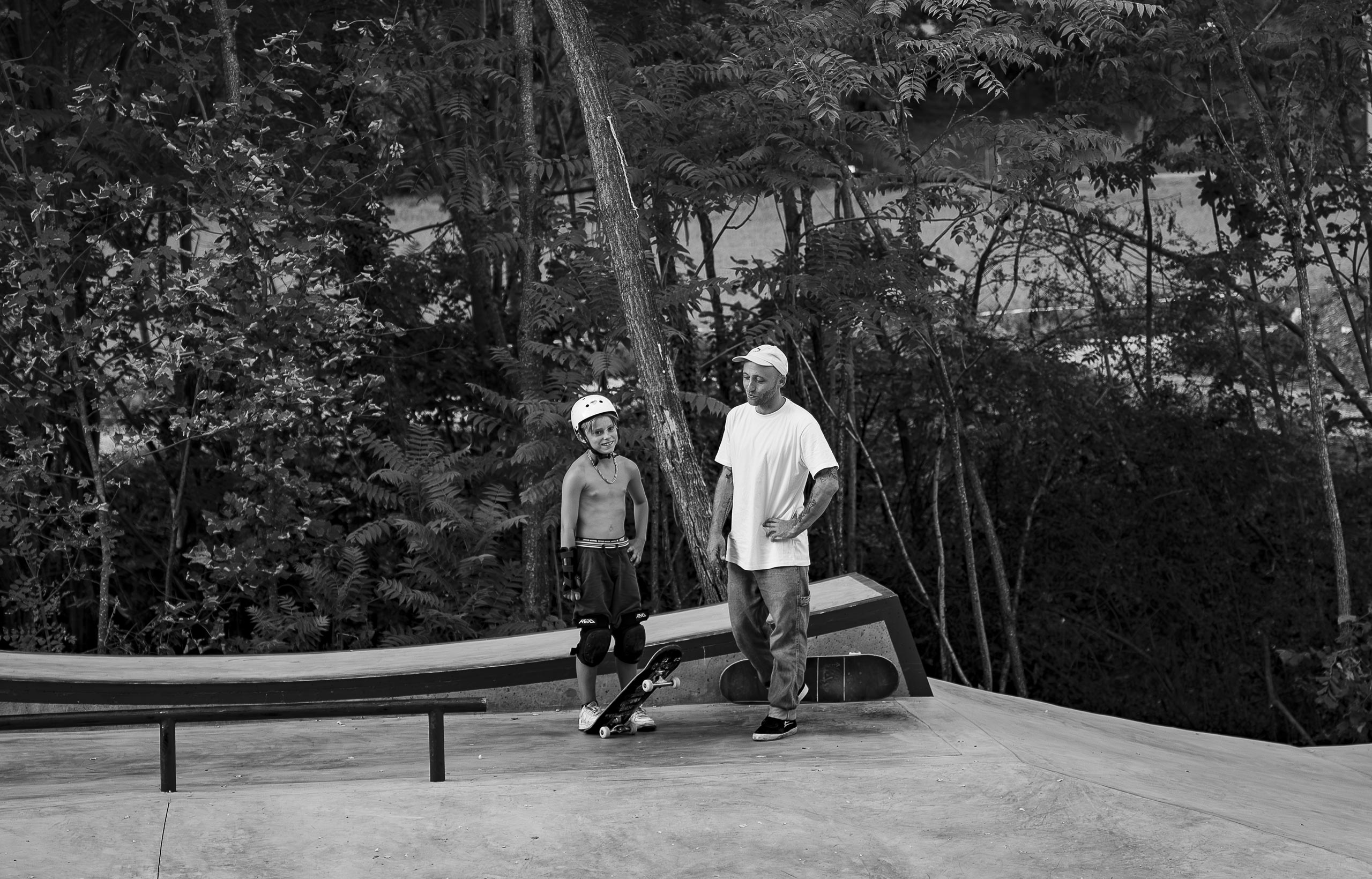
Good to know about Skateboarding
A vast number of studies at various universities shows how skateboarding is building up the youths around the world.
Skateboarding improves mental health, education, inclusion and breaks down social barriers.
Skateboarding is a school for life, it teaches about self-development, discipline and creativity.
“The vast majority of what we do is fall and get back up again”. Rodney Mullen
Skateboarding is Good for Your Mental Health
Many skateboarders understand how good it is for their mental health and sense of community. Now researchers are catching up.
In a major study, researchers from the University of Southern California found that skateboarding improves mental health, fosters community, and promotes diversity and resilience. The study also indicated that people from a diversity of races and genders are important and active members of the skateboarding community.
The report was funded by the Tony Hawk Foundation (since rebranded as The Skatepark Project). Focusing on 13-to 25-year-olds, respondents reported that skateboarding helps to alleviate their stress. Young people often suffer from depression and the study is said to be significant in light of teenage suicide statistics. Connecting with other skaters and building up friendships based on shared passion is another reason skateboarding has been said to improve mental health. The shared activity bridges the divide between cultures, races and genders, helping to increase understanding between these groups. The study also showed that skaters of color felt a greater degree of safety from judgment within the skateboarding community than in non-skate contexts.
The study also linked skateboarding with perseverance and resilience. Skaters in the study reported that they apply the lesson of resilience they learned in skateboarding to their lives outside of skateboarding. Like Rodney Mullen said: “The vast majority of what we do is fall and get back up again”.
Skate parks ‘good influence’ on teens
They are a popular target for community suspicion, but research has found teenagers frequenting their local skate park may be unfairly stereotyped.
Although the development of skate parks has often been fiercely opposed by nearby residents because of fears of antisocial behaviour, researchers from the University of WA’s Centre for Built Environment and Health found the parks encouraged positive behaviour in teenagers.
“Skate parks are a powerful setting in which young people can learn the arts of co- operation, negotiation and compromise informally, in contrast to via the structured rules of organised sports,” Associate Professor Lisa Wood said.
The survey of young skaters who frequented a central Perth skate park drew almost 400 responses, almost all reporting positive behaviours.
Professor Wood said more attention needed to be given to the positive results skate parks had on teenagers.
Dispelling stereotypes related to skateboarding and social inclusion
This project at the University of Western Australia evolved from previous research which examined play spaces for children and the value of nature-based play.
This research supported the notion that skate parks not only provide a venue for leisure and physical activity, but can act as an important social space for young people.
The research challenged the negative stereotypes frequently associated with skate parks and skateboarding, finding young people who hang out there practise a range of pro-social behaviours and life skills critical for the social development and resilience.
We have used our findings to advocate for skateable areas for young people in many local government areas, both in Western Australia, such as within the City of Stirling, Gosnells, Australind, Collie and Mandurah, and interstate, in regions such as Gympie and Braidwood.
Following the completion of the project, we are now seeking funding to involve students in designing some skateboard-related sculptures for the UWA campus. If these developments go ahead, we will be the first university in the southern hemisphere to feature skateboarding-related artwork.
When carrying out this research, we collected data on patterns of use and types of users. We looked at the age, gender, skate/BMX/scooter use, whether users were from local areas, and what transport they used to get to the park. The Nicholson Reserve skate park was our focus for this body of research.
When investigating skate park user views, we asked whether they thought the facility catered for all abilities and whether there was enough space for all areas. We used their suggestions to assist in improving or complementing the existing skate park area.
This research led to a report wich we provided to the City of Subiaco for it to refer to when planning future development and upgrading skate park areas.
Multiple benefits in skateboarding
Researchers at the University of Southern California have found multiple benefits in skateboarding, ranging from mental health to education and careers, the university announced Wednesday.
A first-of-its-kind study of skateboarding culture found the sport improves mental health, fosters community and encourages diversity and resilience, according to USC.
The study, conducted by the Pullias Center for Higher Education at USC’s Rossier School of Education and USC’s Annenberg School for Communication and Journalism, also indicated that gender and race matter in the skateboarding community.
“Skateboarding is embedded in youth culture today,” said skateboarding legend Tony Hawk, whose Tony Hawk Foundation funded the study.
“Until now, little attention has been directed toward truly understanding who skateboarders are, what they think or why skateboarding becomes such an integral part of their identity. We at the Tony Hawk Foundation are proud to have sponsored this work in order to highlight these young people.”
Researchers created a survey that targeted 13- to 25-year-olds and received more than 5,000 responses, including a significant number from skaters who identified as female and/or as a person of color. Interviews also were conducted with 120 skaters and skate community stakeholders in seven cities across the U.S.
The findings fly in the face of commonly held misconceptions around skateboarding culture, according to the Pullias Center’s Zoe Corwin, the study’s principal investigator.
“Skateboarders are prone to being labeled by society as rebels, social deviants or rule-breakers,” Corwin said. “Stereotyping masks an array of valuable skills obtained through skateboarding. The study aims to redefine what it means to be a skateboarder and highlight connections among skateboarding, education and career.”
